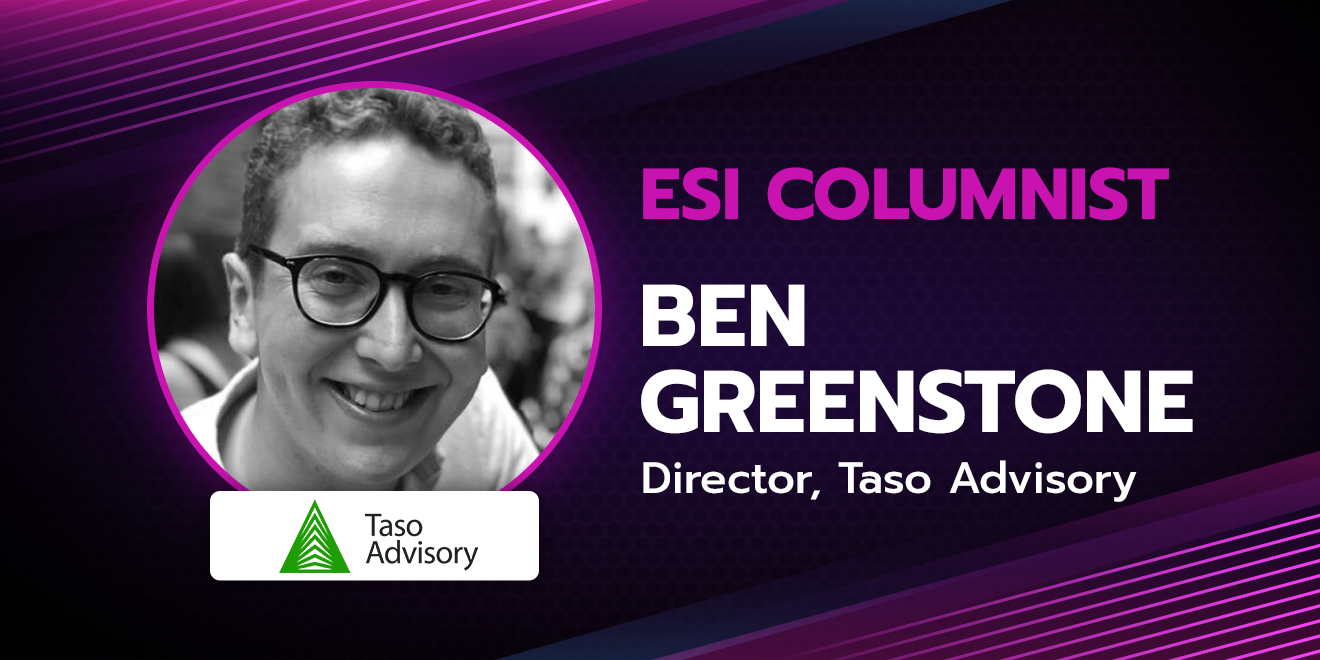In this short piece, ESI Guest Columnist Ben Greenstone, Director at Taso Advisory and former Private Secretary to the Minister for Digital and Creative Industries (United Kingdom), details the imminent and growing need for proper safeguarding in esports.

Academies and junior player development are a core part of how many esports teams, and indeed some leagues, are currently thinking about their future. Rightly so. They build up early engagement and set teams up for success past their current rosters. They can also be financially rewarding, as academy players are sold on to other teams.
In traditional sport, academies and coaching activities for young people — and indeed adults — are subject to rigorous safeguarding processes. Sport England describes safeguarding as the ‘process of protecting children and adults from harm by providing a safe space in which to play sport and be active’. The Sport and Recreation Alliance sets out the requirements for effective safeguarding: a policy, a code of conduct, preventative arrangements, procedures and systems for reporting abuse, and a monitoring system.
Traditional sports typically have national and international governing bodies. These governing bodies have spent many years creating and improving systems to safeguard both children and adults in their ecosystems. The same cannot be said of individual esports.
RELATED: The impact UK Government’s proposed ban on HFSS online advertising has on esports
Each esport has a wildly different governance structure. For some, the publisher takes an active role, while for others the publisher is nowhere to be seen. Some tournament and league organisers consider governance a core part of their function, where others consider their remit to end at competitive integrity.
In an attempt to fill this void, national and international bodies have sprung up to deal with a frequent lack of formal governance. The Esports Integrity Commission is a notable success that has effectively tackled and prevented cheating and malpractice. The Commission draws its authority from general consensus: both tournament organisers and teams recognise the Commission’s jurisdiction.
There is no such effort or success when it comes to safeguarding in esports, and this is being noticed. Last year Lyn Brown, the Member of Parliament for West Ham, asked the Government whether it would require Disclosure and Barring Service checks and safeguarding guidance for esports coaching. The Government said that safeguarding will be a crucial part of the Government’s work to support the growth of esports.
[primis_video widget=”5183″]
RELATED: Additional 35 individuals dealt bans in ESIC, ESEA investigation update
Esports businesses, whether teams, publishers, tournament organisers or otherwise need to take safeguarding seriously. Not only is it the right thing to do; it also makes business sense. It sets up esports businesses to engage proactively with the Government and to use their expertise to help shape the future system. Further, as investors increasingly focus on ensuring their investments are ESG-compliant (environmental, social and corporate governance), failing to safeguard young people will be a failure to comply. It’s time for the industry to act.

